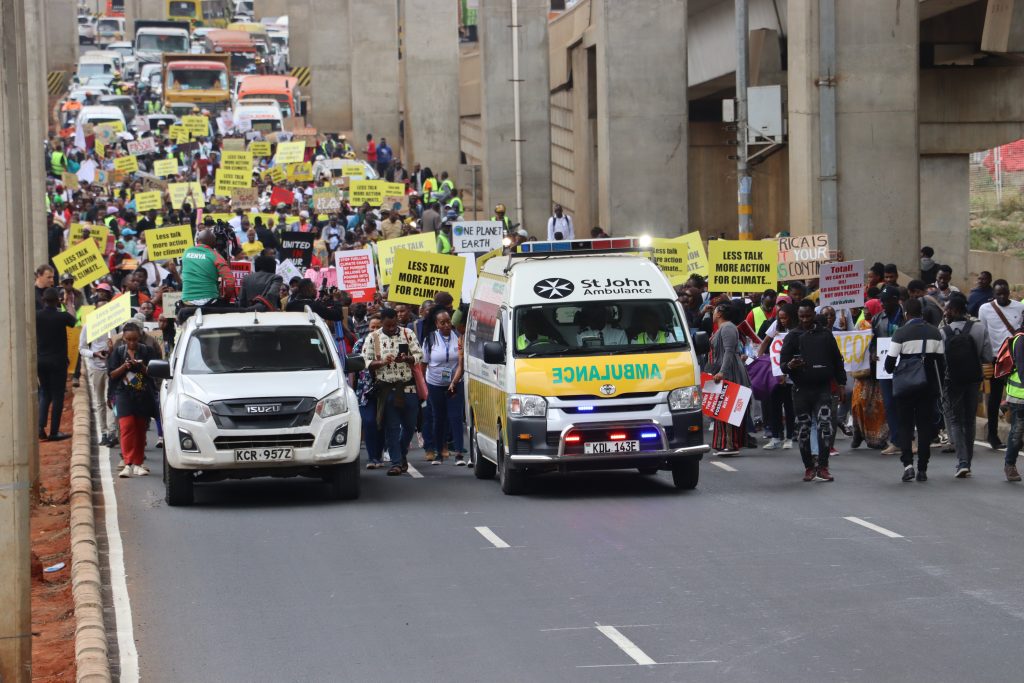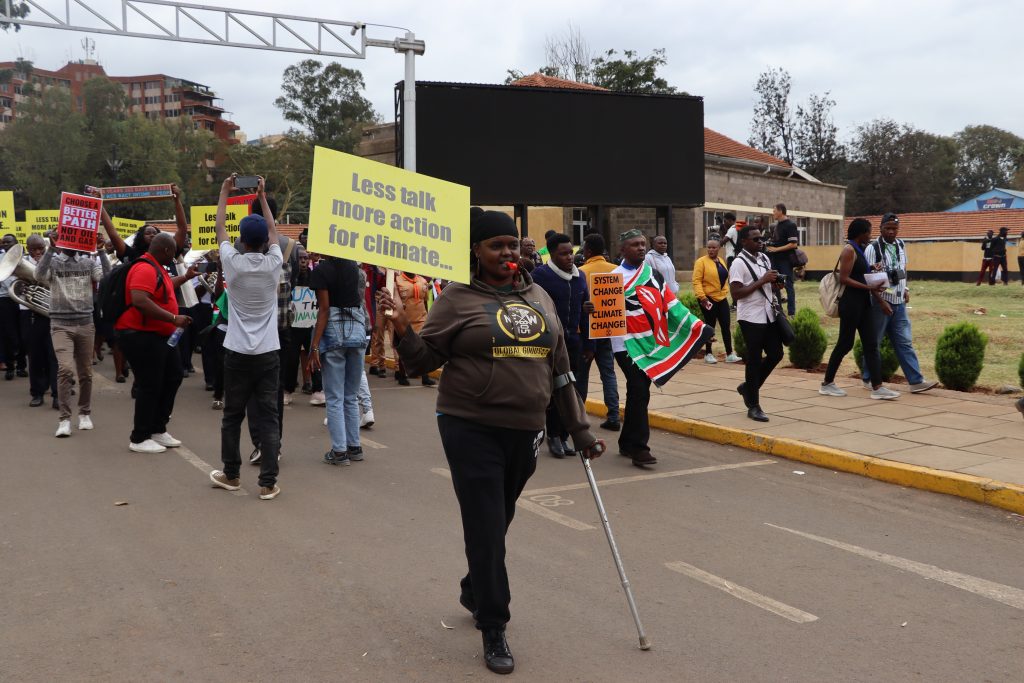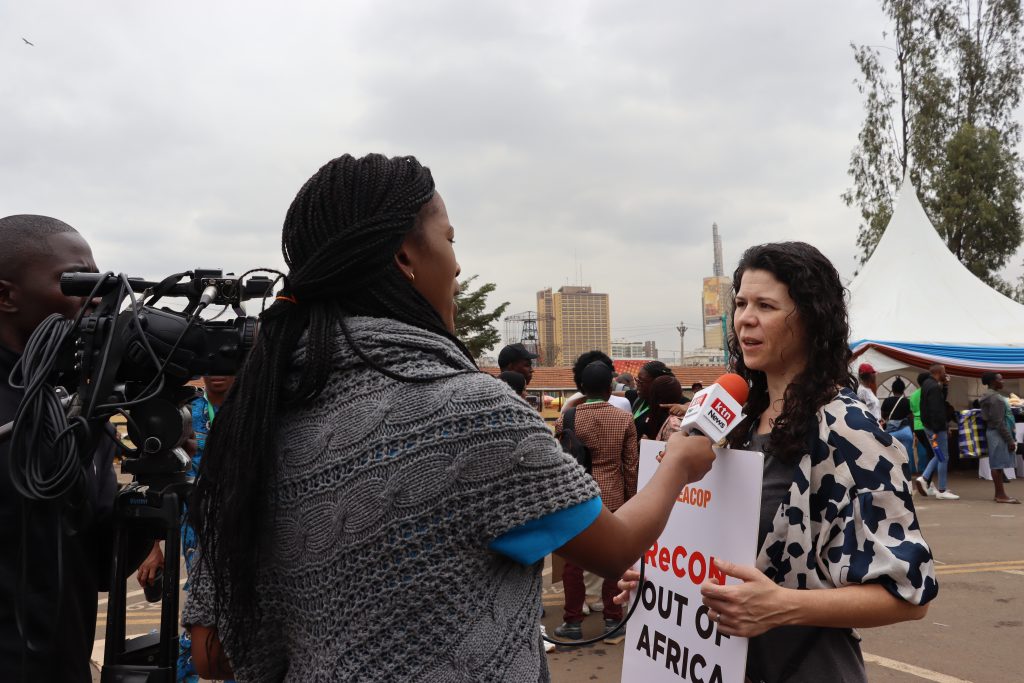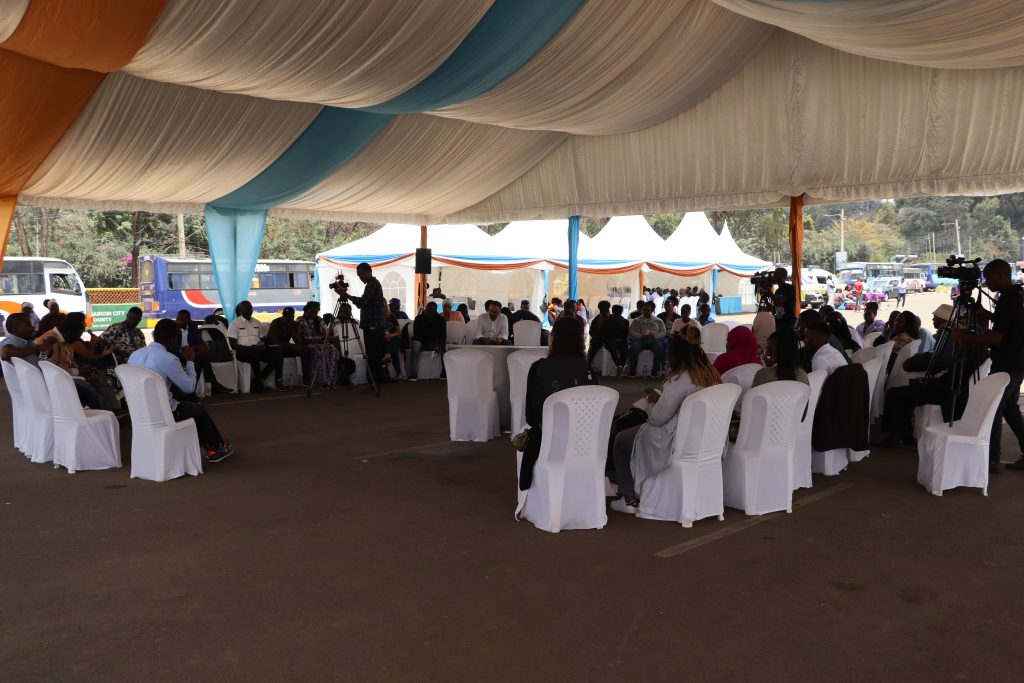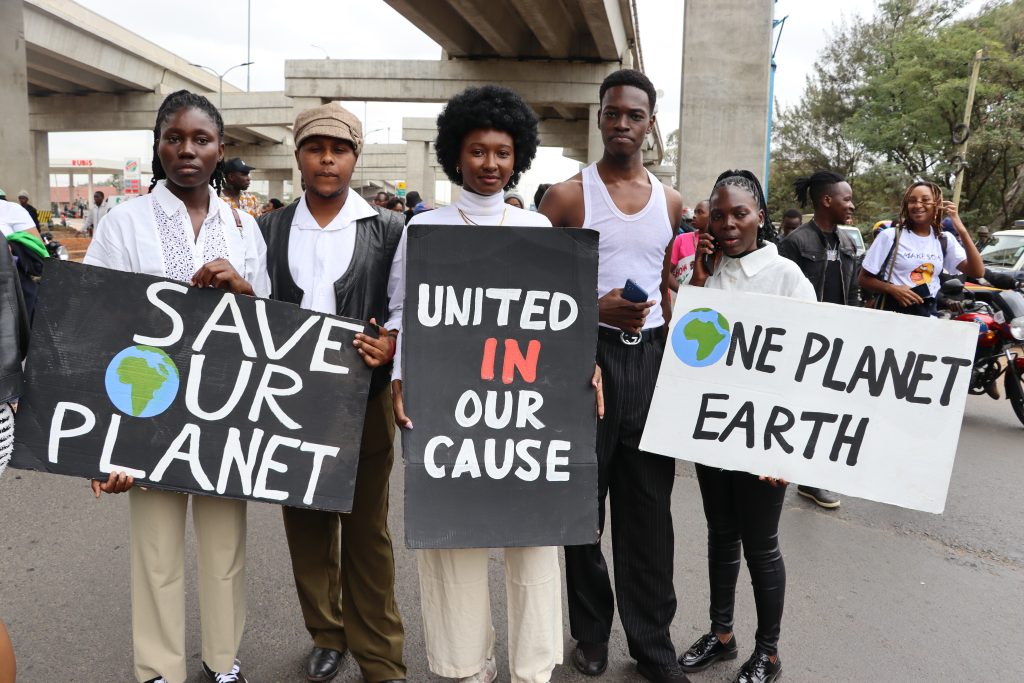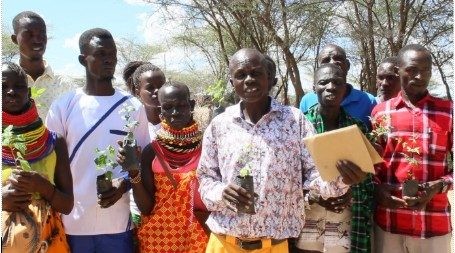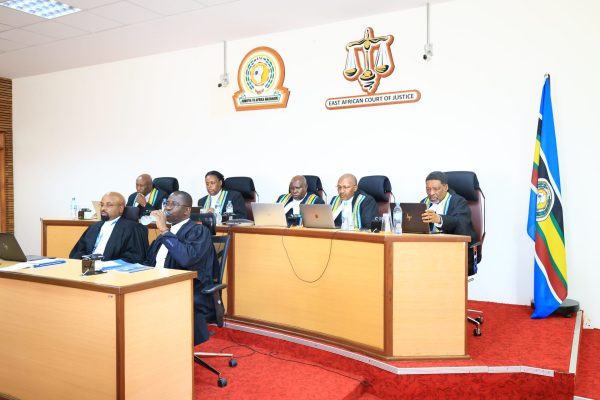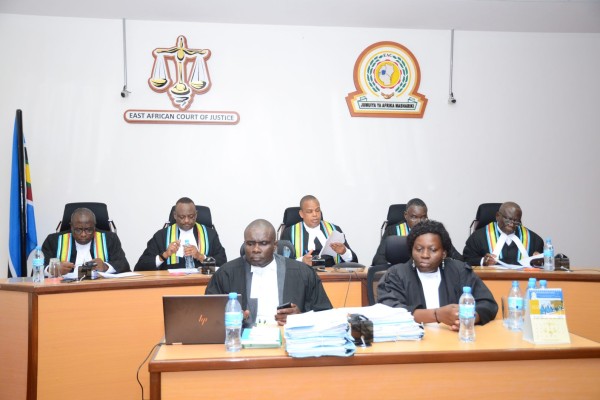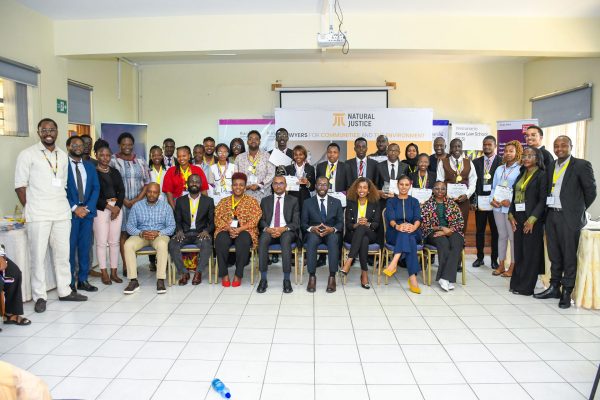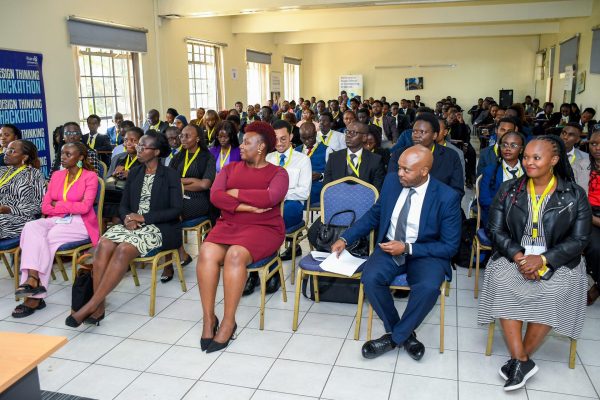On the path to COP28, the Africa Climate Summit was held with the intention to co-create African-lead decisions and plans to bring to COP28 The decisions made by the delegates at the Africa Climate Summit took the form of the Nairobi Declaration.
A group of communities and civil society were not in the presence of the Africa Climate Summit but instead had other plans to ensure the voices of those most impacted would be heard. This was achieved through the Real African Climate Summit and the Africa People’s Climate Assembly.
From 3 to 6 September 2023 the African People’s Climate Assembly was held. As fossil fuel powered vehicles delivered the delegations from across Africa and the President of Kenya arriving in an electric car, so the African people marched in the Real African People’s Summit March to the African People’s Climate Assembly to voice their concerns.
Compared to the lustrous Jomo Kenyatta International Convention Centre, the grassroot venue of the Africa People’s Climate Assembly, was the GreenPark Bus Terminus. A parking lot that was converted into a meeting of minds from civil society, community and allies. Compared to the Summit, the Assembly allowed anyone in.
Build up and Preparations for the Africa Climate Summit and Week:
A week before the Africa Climate Summit begun, civil society was called together to join and participate the African Energy Renaissance Conference1.
The issues highlighted during the Renaissance Conference were clean cooking, energy access, false solutions and fighting fossil fuels. All of these issues then developed into a main objective which was African needs to develop climate and energy policy by Africans for Africans.
At the same time as the Renaissance Conference the Real African Summit was preparing a call (which can be found on the Real African Summit page) to the President of Kenya regarding the African Climate Summit and raising concerns. These concerns included pro-Western agendas and interests at the expense of Africa. In a positive call it stated that the summit was a tremendous opportunity to chart a new course for Africa with leadership for a cleaner, safer and prosperous future that protects Africa’s people, food systems, water resources and biodiversity.
This opportunity was reaffirmed by Secretary-General, Antonio Guterres who stated in a speech at the Africa Climate Summit that “Just as the injustices of climate change burn fiercely here in Africa, so do the opportunities. I’m convinced that Africa can be at the heart of a renewable future”.
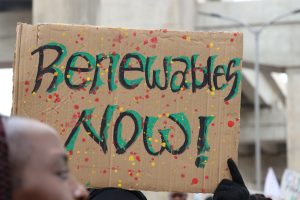
The Dialogue in the Justice and Human Rights tent
At the African People’s Climate Assembly, one of many dialogues that were held was one centred around Justice and Human Rights in the context of energy and the just energy transition. The dialogue discussed a critical issue on how we place human rights and people at the centre of the just energy transition across Africa.
Important questions were posed by Nyaguthii Chege, the East African Hub Director for Natural Justice, to open the dialogue like what is a just energy transition, what does a just energy transition mean for different people and what is the purpose of just energy transitions? The simplest answer is that a transition is to start at a certain point and move to another. However, for African communities this is a misnomer. Many African communities are not moving from fossil fuel energy to renewable energy with over 600 million people in Africa not having access to energy according to the International Energy Agency. The most important question is why would we push clean energy projects if these do not resolve energy access in Africa? What legal frameworks are needed for projects to ensure that projects are clean, green, fair, just and sustainable? Creating that legal space will hold the key to projects that led to a just energy transition.
Just renewable energy
Renewable energy is needed but through the dialogue there was an appreciation that if process and public consultation are not done in a meaningful way, human rights are not upheld.
In Kenya, communities have had to feel the impacts of air and noise pollution through exploration of geothermal. Though communities have been impacted, public participation was avoided. Promises made to the community of beneficiation have not been kept. Energy access has not been given to communities. Even when access to energy is given through solar mini grids, mangroves and indigenous floral is threatened. Nuclear energy has a similar threat of removing forests and mangroves, which communities and the environment rely on.
In South Africa, it is no different with a push for green hydrogen where public participation is seen as a privilege to communities. There is a lack of access to information about what really is happening in relation to the projects. Green hydrogen is seen as an export market where communities will need to deal with an influx of people it will bring to the area. Also due to large pieces of land being needed, people are threatened with losing their homes. Ports being built for export displace fisherman from their fishing areas and thus destroy their livelihoods.
If we are to see a just energy transtiion, there needs to be meaningful public participation, people centred decision making and access to information.
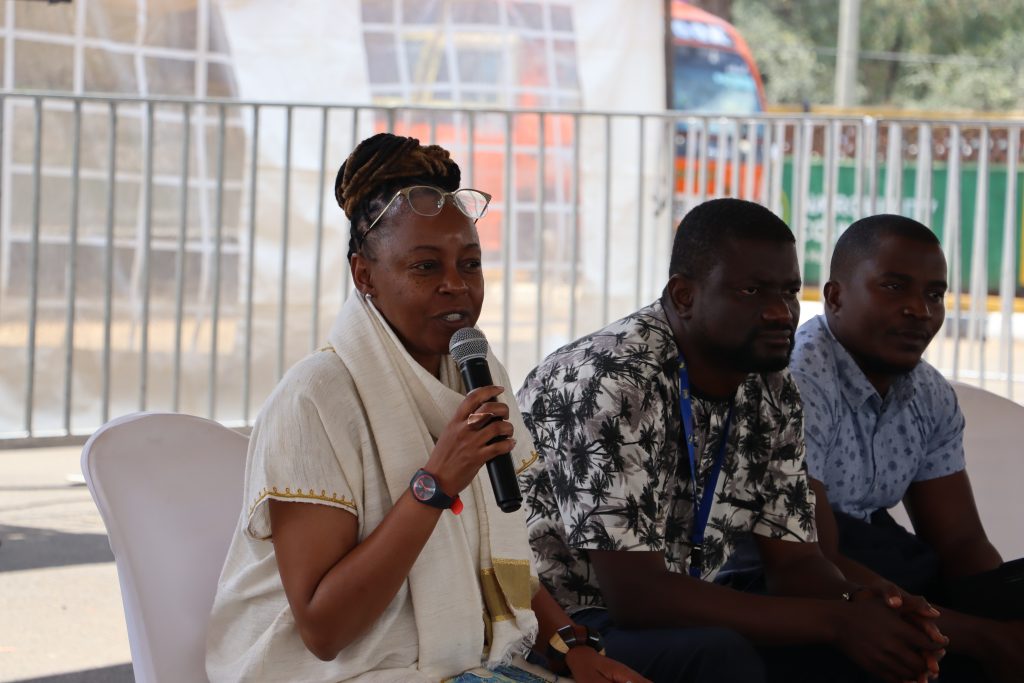
Just energy transition partnerships
Promotion of just energy transitions have been highlighted with just energy transition partnerships both in South Africa and Senegal.
Professor Tracy-Lynn Field explained the value of distributive, procedural and administrative justice needed in just energy transitions and the partnerships that follow. It must be remembered that the just energy transitions in the south will be different from the north due to lack of security of energy. For access to energy, mini-grids should to be considered for community owned energy.
Recently Senegal has negotiated and signed a just energy transition partnership in 2022 and 2023. This partnership agrees to increase renewable energy to 40% of the energy mix. There is a call for transparency and inclusion in this process. There is a need for monitoring and evaluation for all planned activities which are made public as stated by Thaily Faye from Oxfam. Salimata Ba from Femnet added that the JETP contents were not known by community members and the public, despite complaints. Clean energy is crucial for women to lessen work with 75% of the time women tend to unpaid work.
Though there is a partnership, Senegal is still exploring oil and gas projects. Thaily Faye shared a discussion paper which is being prepared titled “Senegal’s Petroleum Future or a Stranded Asset Risk”. This report will analyse the financial model of the economics and contractual terms of Rufisque Offshore Profond and applicable fiscal regime. Rufisque is currently being explored for potential of oil and gas.
Reflections on dialogue
There is clear urgency for a transition to a rapid deployment of renewables. The urgency highlighted as stated by the Secretary-General, Antonio Guterres in that “the era of global warming has ended; the era of global boiling has arrived” in his opening remarks at the press conference on climate this year (Full speech).
Though there is a looming crisis, there has been an increase in gas and oil across Africa due to the global energy crisis caused by the war in Ukraine which started in 2022. It has opened the opportunity for fossil fuel companies to expand with the great portion of these fossil fuel projects not being planned or started for the next ten years.
In the dialogue recurring issues resonated like:
- Infringement of land rights;
- Not all risks and impacts being disclosed to communities;
- Local communities and indigenous people not being in the decision-making process or planning;
- Promises made to local communities and indigenous people not being kept in the form of benefits ;
- No access to energy being provided to local communities and indigenous people; and
- Environmental impacts which could have been mitigated.
The priority is not the communities and the people who need electricity but rather the market forces and export. There needs to be a paradigm shift of priority in economies and for there to be energy democracy and sovereignty which places communities in control of their own energy needs.
For this to happen there needs to be improved energy policy. Beyond that communities and indigenous people need transparency and access to information regarding energy projects, energy contracts and just energy transition partnerships. For recourse, there needs to be better access to courts of law and improved processes so communities can hold people in authority accountable. There always needs to be consideration of gender sensitivity and the most vulnerable when making energy decisions.
Concluding thoughts
One line that stood out from the African People Climate Assembly was “less talk, more action”. That is exactly what is required for just energy transition through law and policy reform with accountability and transparency.
The above is a conversation that must continue and will through the Just Energy Transition Initiative which will be holding regularly meetings. For more information and to sign up for the meetings please click here and contact us.
Special thanks
A special thanks to the organisers and attendees of the Real Climate Summit, the Natural Justice East African office and the co-facilitation by Muhammed Lamin Saidykhan, Omar Danso and Ahmed El Droubi.
A further special thanks to the following people who shared their stories during the dialogue: Anne Njoroge of Natural Justice, Timothy Ngetich, Justus Kithi Tsofa of Natural Justice, Yegeshni Moodley from Groundwork, Thialy Faye from Oxfam and Professor Tracy-Lynn Field.

